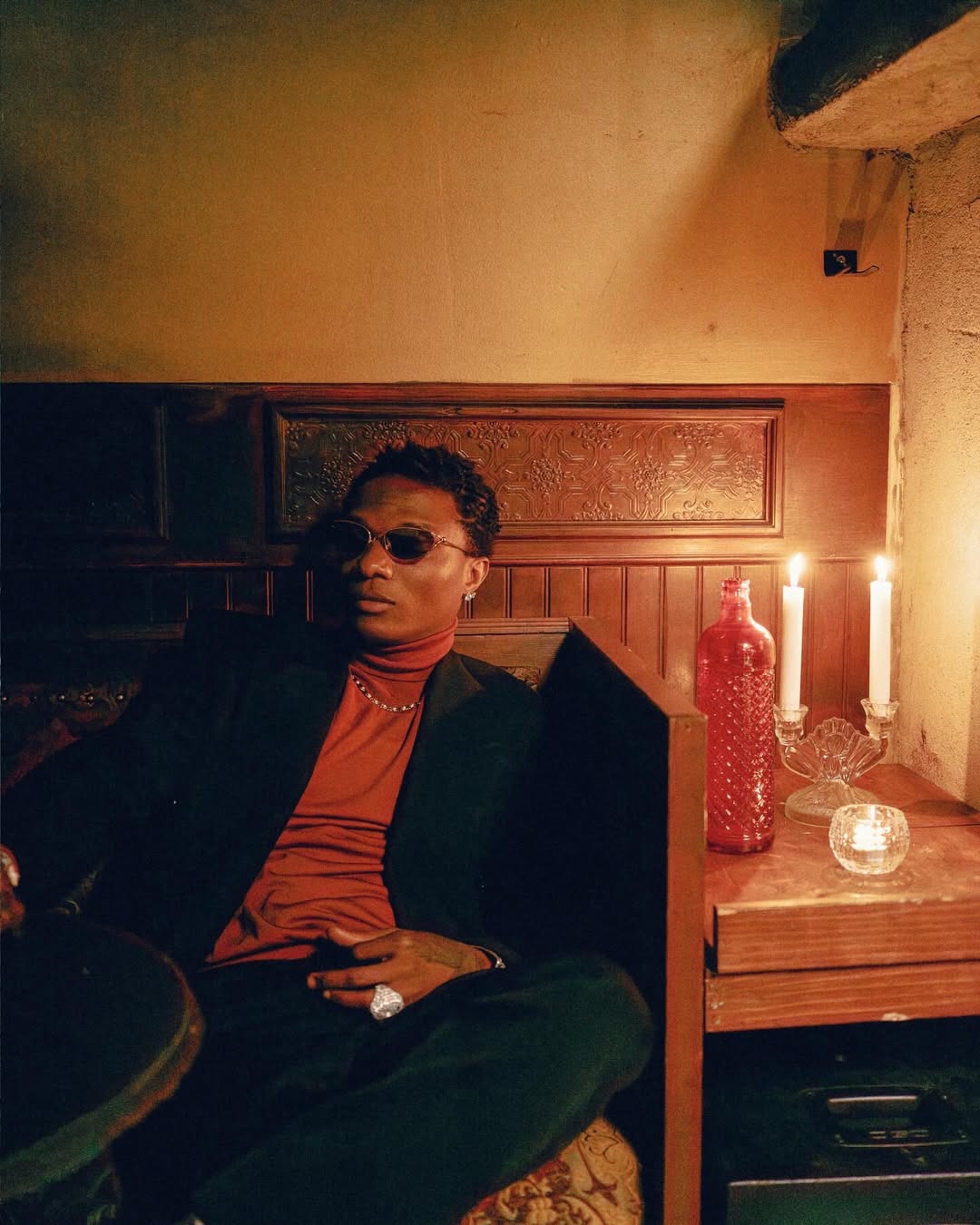The inimitable Fela Ransome Anikulapo Kuti will forever be remembered as the Father of Afrobeat(s) and one of the most audacious performers the world has ever experienced. Fela
was a skilled entertainer who had the privilege of wining and dining with the aristocrats of society yet chose to be the common man’s mouthpiece through his music which was often clustered with activist-driven messages that tackled the heinous practices of capitalism, colonialism, political oppression, self-sabotage amongst Black people and more.
A national hero, a musical icon, an enigma, all of the aforementioned Fela have been called and all stay true. Fela lived a full life albeit a short one as he died twenty-six years ago at the early age of fifty- eight on the 2nd of August 1997.
In honor of the music legend’s posthumous twenty-sixth-year anniversary, these are twenty-six of Fela’s best works.
(Disclaimer: song selections for this list are considerably subjective and arranged in no particular order).
Ololufe (1963)
Before Fela pioneered Afrobeat, he was into Highlife and one of his earliest renditions with his Koola Lobitus band was a song titled ‘Ololufe’. Ololufe is a beautiful ballad that blends Jazz, Soul music, and Highlife.
Opposite People (1977)
Opposite People was released in 1977 during the time Fela’s communal home, Kalakuta Republic was raided and destroyed by military personnel. The song is a vocal onslaught aimed at people who constantly work against the public consensus and those who purposefully thwart the progress of others in return for self-gratification.
Beasts Of No Nation (1989)
Fela Kuti’s ‘Beast Of No Nation’ is an unapologetic mockery of the failed Nigerian system of Government. In the song, Fela called out the corrupt practices of so-called Nigerian leaders in power with comical yet subliminal lines such as “Animal in human skin, animal dey wear agbada”.
Gentleman (1973)
Gentleman was released in 1973 under the studio album with the same title. The song has been sampled by various musicians including American hip-hop artist J. Cole ( Let Nas Down). With
Gentleman, Fela affirmed his idea of the unwavering African man, one not bound to the White Man’s corporate suit and tie build.
Water No Get Enemy (1975)
In 1975, Fela recorded the evergreen classic hit single ‘Water No Get Enemy’. A simple yet thought-provoking song with brilliant musical improvisations to match. ‘Water No Get Enemy’ is one of Abami Eda’s greatest hits without a doubt, a song that has been chorused and lauded by generations.
Zombie (1977)
Fela’s Zombie was recorded in 1976 but officially released in 1977 under Creole records. Zombie is a song that tackles and makes jest of the herd mentality in the average post-colonial African man. It is also one of Fela’s most sampled and interpolated songs with contemporary artists such as Wizkid and Burna Boy following suit.
Sorrow, Tears, and Blood (1977)
Sorrow Tears and Blood is one of Fela’s many introspective numbers. The song was recorded
in 1977 by Fela and his Afrika 70 Band. The song talks about the crippling effects of mass
genocide.
Lady (1972)
“If you call am woman, African woman no go gree, she go say I be lady oh” is a line that has found its way into the nitty gritty of modern Afrobeats songs. Before Wizkid, Tiwa Savage, and the likes said those words, Fela said it first in his 1972 hit track ‘Lady’
Shuffering and Shmiling (1977)
Shuffering and Shmiling is a song that speaks about the current and sad reality of Nigerians living in Nigeria. Sadly, the song still holds its essence the same way it did when Fela wrote and performed it in 1977.
Trouble Sleep, Yanga Wake Am (1972)
Over Fela’s custom Jazzy instrumentation, he narrates a series of events in a way only he can in his 1972 classic ‘Trouble Sleep, Yanga Wake Am’. The song deserves a spot in the Fela’s greatest song hall of fame for sure.
Shakara (1972)
Shakara is a witty satire aimed at the modern-day African woman who took pride in painting a facade of character by playing hard to get or exhibiting a fake lifestyle as opposed to being true
and original. Fela was an avid storyteller and this song was/Is an interesting story.
Expensive Shit (1975)
Fela’s Expensive shit was released in 1975 under his twelfth studio album with the same title. The song talks about the fabricated lies and propaganda hurled at him by the government in
power. A remarkable rendition.
Teacher Don’t Teach Me Nonsense (1986)
During his lifetime, Fela actively voiced out by using his music as a weapon against the system and the powers that be. His 1986 hit ‘Teacher Don’t Teach Me Nonsense’ is one such instance
in which he used his art to address a protruding issue.
Colonial Mentality (1977)
Colonial Mentality was written and performed by Fela and the Afrika 70 Band in 1977. The song is a wake-up call to Africans who saw themselves as superior to other Black people simply because they lingered on to Western practices, and norms despite liberation from the British Western colonies.
Everything Scatter (1975)
Everything Scatter is a song that talks about the everyday Jagbajantis of Nigeria by Nigerians. The legendary artist recounts several narratives that all lead to one constant- Everything Scatters.
Yellow Fever (1971)
Yellow Fever is a jab at African Women who are accustomed to skin bleaching. In the song, Fela humorously warns against the dangerous aftermaths of artificial pigmentation of the skin.
Kalakuta Show (1976)
Through ‘Kalakuta Show’, Fela brings to life the story of a prison riot that leads to a dangerous face-off between Inmates and police officers.
Fear Not For Man (1977)
Fear Not For Man is a song that quotes the great Father of Pan-Africanism, Dr. Kwame Nkrumah of Ghana. Fela doesn’t sing much on this song, instead improvises beautiful notes with his Saxophone while charging listeners to face their deepest fears.
Onifere (1963)
Fela Kuti and His Koola Lobitos band were sensational. Their groundbreaking experiments with traditional sonics like Highlife and Jazz were remarkable and the 1963 ‘Onifere’ is an example of
the by-product of the group’s genius.
Gbagada Gbagada Gbogodo Gbogodo (1971)
On ‘Gbagada Gbagada Gbogodo Gbogodo’ Fela delivered a soothing blend of Nigerian folk music and Jazz. The song’s theme is derived from beer parlor camaraderie.
Roforofo Fight (1972)
1972’s ‘Roforofo Fight’ is a song about two people involved in a brawl that leaves both parties in
unrecognizable states. Fela’s scat singing is impeccable on this record.
Question Jam Answer (1972)
Question Jam Answer is about a back-and-forth in Fela’s mind and he delivers a brilliant performance on the song.
No Agreement (1977)
No Agreement was released in 1977 by Fela Kuti alongside the Africa 70 band. The song falls under the album with the same name. In No Agreement, Fela talks about his refusal to kowtow in the face of injustice.
Why Black Men Dey Suffer (1971)
Why Black Men Dey Suffer was released in 1971 and it was featured on the Nigerian African sounds produced album with the same name.
Alu Jon Jonki Jon (1973)
Alu Jon Jonki Jon was released In 1973 under Fela’s ‘Afrodisiac’ album. The song explores Rock, Folk Music, Jazz, and Champeta music.
Who No Know Go Know (1975)
Who No Know Go Know is a Fela classic released from the 1975 Everything Scatter album.




